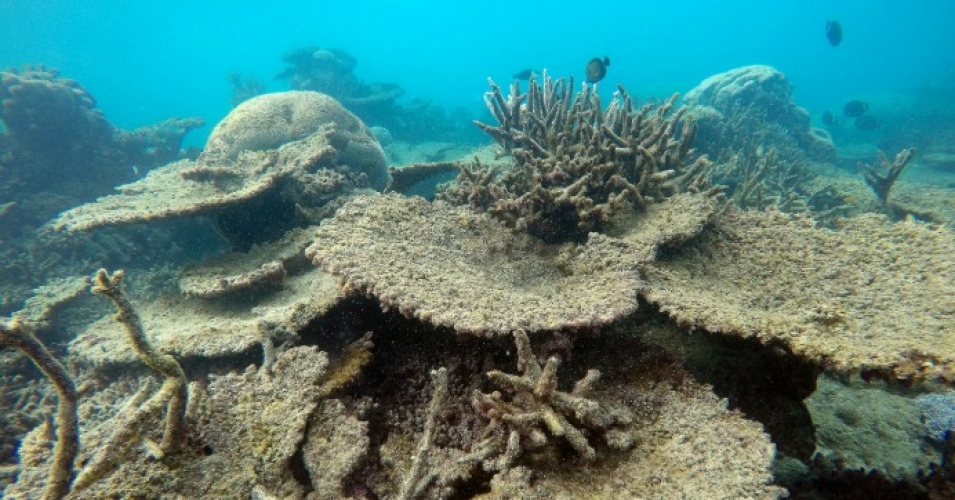
The Great Barrier Reef suffered through the worst coral die-off in recorded history this year, scientists found, with unusually warm ocean water and record-setting bleaching eventskilling a stunning 90 percent of all coral in the worst-hit area.
Those were the conclusions of a study published Monday by the ARC Centre of Excellence for Coral Reef Studies.
“One of the worst-hit areas is around Lizard Island in Far North Queensland, where around 90 percent of the coral has died,” reports the BBC. “Dr. Andrew Hoey, whose team charted the area, said the impact was far worse than feared after an initial survey in April.”
“It’s devastating to get in the water somewhere you’ve been coming for almost 20 years, and it’s just knocked it on its head,” Hoey told the BBC. “There’s very little coral cover left there. It was dominated by the acropora—the branching corals—but we lost most of them.”
The BBC reports on what caused the mass coral death:
In February, March and April, sea surface temperatures across the Great Barrier Reef were the hottest on record, at least 1ºC higher than the monthly average.
“Some of the initial mortality was down to heat stress,” said study leader Professor Terry Hughes.
“The coral was cooked.”
Far more has been lost through gradual starvation, after the coral expelled the colourful algae zooxanthella, which turns sunlight into food.
This is what leads to the white, skeletal appearance of the coral, which is left without its main source of energy.
The study also found that the coral which survived the bleaching have now come under greater threat from predators such as snails and crown of thorns starfish.
However, researchers also discovered that corals in the southern areas of the Great Barrier Reef fared better, with the central region of the reef showing only six percent of corals dying off.
“The good news is the southern two-thirds of the Reef has escaped with minor damage. On average, six percent of bleached corals died in the central region in 2016, and only one percent in the south. The corals have now regained their vibrant color, and these reefs are in good condition,” said Professor Andrew Baird of the ARC Centre, who took part in the research.
For the dead coral in the Great Barrier Reef’s northern region, though, recovery seems a dubious prospect, as climate change appears to only be accelerating.
“The trajectory is not good,” Dr. Anne Hogget, a scientist who works at a research station on Lizard Island, told the BBC. “We keep pumping carbon dioxide into the atmosphere, and this happened absolutely because of that.”














































